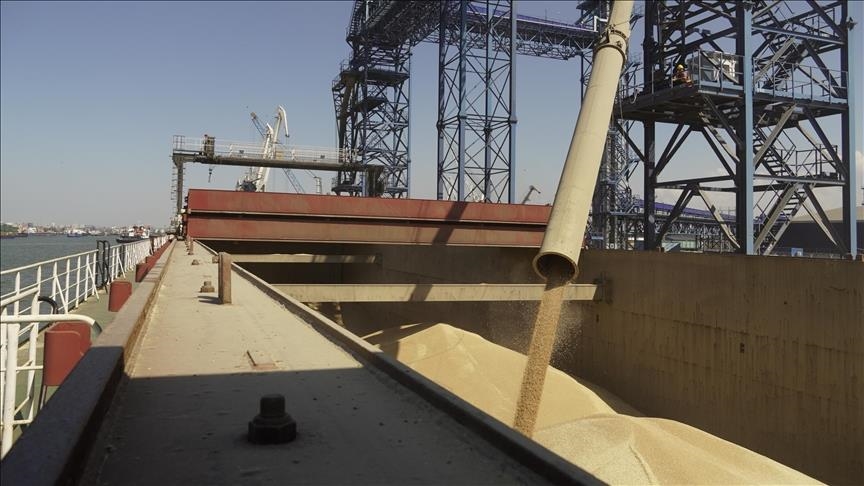

By Anadolu Agency
SARAJEVO, Bosnia and Herzegovina
Ukraine’s successful grain exports that helped alleviate a global food crisis amid the ongoing war with Russia have sparked protests from neighboring countries, according to media reports.
The development has caused tension within the EU, as farmers in Poland felt undercut by the flood of Ukrainian grain imports, despite being destined for sale outside the EU.
The local media from multiple EU member states have reported that farmers remain unsatisfied.
The neighboring countries like Bulgaria, Hungary, Poland, Romania, and Slovakia imposed import restrictions, which the European Commission criticized.
EU Commission spokesperson Eric Mamer last week announced that a new round of funding was being worked on by the EU to ease the farmers’ burdens and establish a common approach, saying: “When we have measures taken by member states that aren’t compatible with EU law, we don’t directly go towards an infringement procedure – we don’t directly go to court. There’s always, generally at least, a phase where we have a discussion with member states.”
The EU Commission is now planning a €100 million support package for five neighboring countries, on top of the €56 million from the EU budget to help cope with increased Ukrainian imports.
Recently, Warsaw and Bucharest have shown a willingness to ease the restrictive measures, but are demanding more financial aid from EU institutions.
Polish Prime Minister Mateusz Morawiecki claimed a $2.4 billion support package was necessary stating, saying: “What the EU is offering us is offered with a delay. It is too little, a drop in the ocean of needs.”
Hungary, Bulgaria, Poland, Romania, and Slovakia all urged the EU in a letter last month to protect the farmers within the bloc.
We use cookies on our website to give you a better experience, improve performance, and for analytics. For more information, please see our Cookie Policy By clicking “Accept” you agree to our use of cookies.
Read More